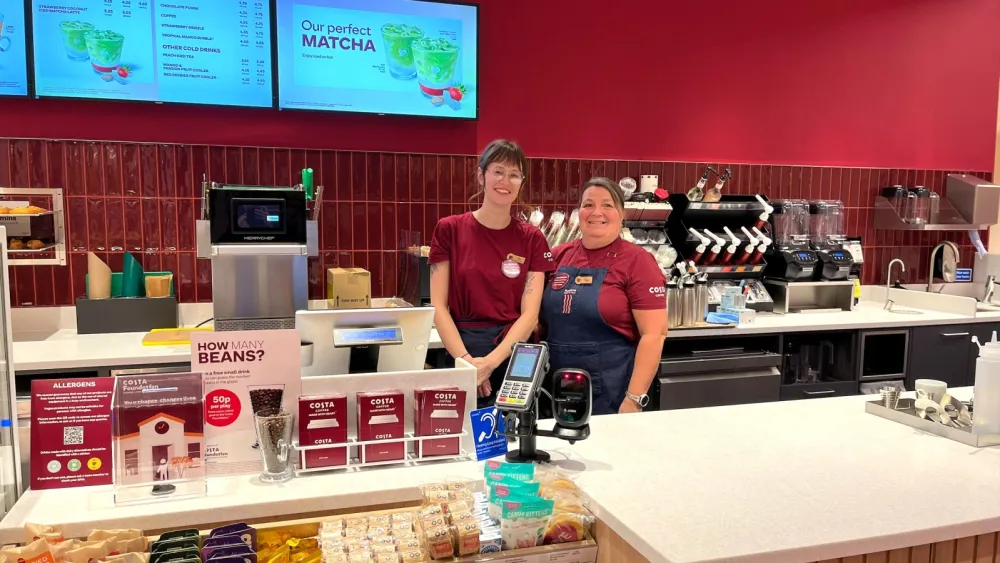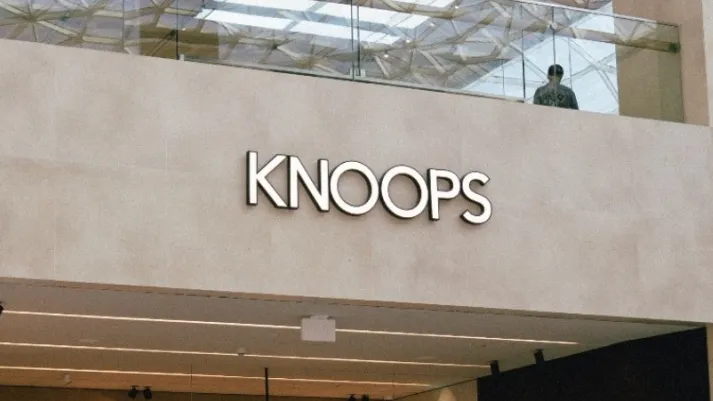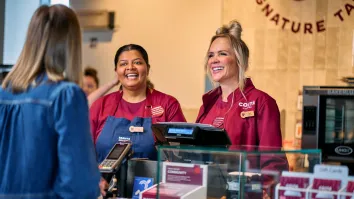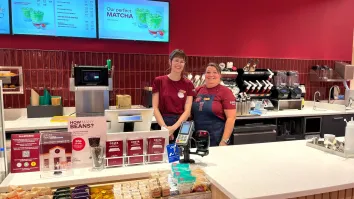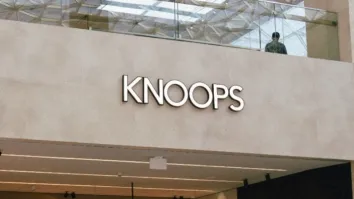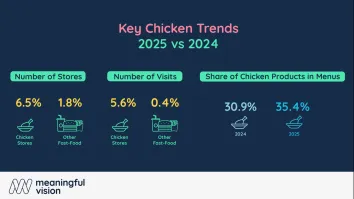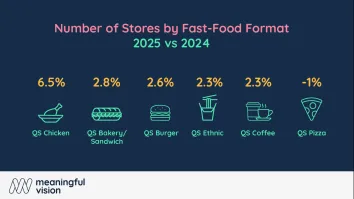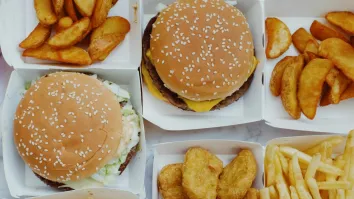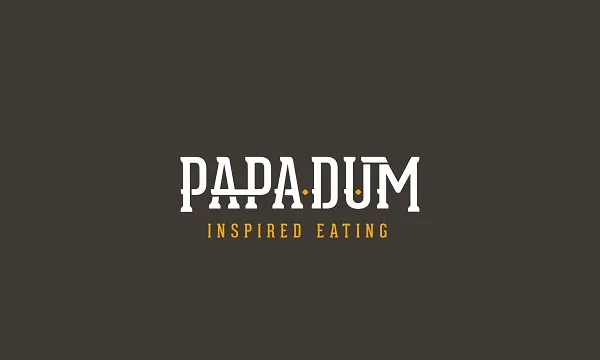
EXCLUSIVE: Meet the new QSR hoping to become the McDonald's of Indian food
Being one of the UK’s most popular cuisines, at first glance it may not seem that there is an obvious gap in the market for an Indian QSR, but Hiren Bagdai disagrees. Founder of Papa-Dum, the new authentic Indian QSR, Bagdai believes there is huge scope to popularise authentic Indian food in the UK, and that his concept can become the McDonald’s of Indian food.
“The idea was very simple. It was to provide authentic Indian food in a convenient manner. That's our motto. We hope to revolutionise people’s perception of Indian food by providing authentic Indian food in a convenient way, which is accessible to all,” he told QSR Media in an exclusive interview.
In establishing the brand that is so central to his heritage in an accessible, affordable way, Hiren said that he wanted to change the perceptions of British consumers about Indian food. “Our philosophy is to have the opportunity to inspire people to try new foods they typically wouldn’t”, Hiren explains.
“The easiest way to spread our passion for Indian food is to show that it can be healthy, balanced, and that it's not just about curry. There are still some negative connotations about Indian food being fatty and full of glee (Indian butter). We have a wide selection of products that are low in calories, catering for today’s health conscious society. It’s also worth noting a vast percentage of our menu if vegetarian and vegan. My family is vegetarian so we have factored in some delicious home styled recipes”.
Part of the reason Indian food is not as widespread amongst the Western QSR market, Bagdai believes, is the sizeable commitment involved in doing so. Authentic Indian food requires more ingredients and is quite challenging in terms of logistics compared to burgers or fried chicken.
“I think it’s not just about the financial risks, but the product risks,” he said. “To make an idea work in terms of margins and time isn't easy. But sometimes you’ve got to take that, go with your passion and desire to bring something new”.
Papa-Dum spent around two and a half years in development before Hiren felt it was ready to launch. Much of that time was spent creating the network needed to make their food as authentic as possible, doing research into contemporary Indian cuisines, and establishing the supply chain with importers from India.
“We spent the time thinking about the operational aspects to the concept, how long the process takes, how the food travels. We've perfected our dishes, so that they can be made in a QSR setting without losing the flavour. This can be challenging depending on your site” Bagdai said.
“Every QSR is hard work, but when you have a unique concept, with so many different elements there is an extra level of operational challenge to work through.”
Bringing authentic, accessible Indian food to the UK
The Papa-Dum team wanted to expend the effort because they believe that authenticity was at the heart of the brand they wanted to create.
“Our goal first of all was to remain authentic but to do so in a cost effective, operational way which doesn't affect the taste of the food. I'm not saying that we're the only ones that will do this, but it is difficult to get to the level we’re at,” he said.
Design plays a huge role in the brand too. Working with consultants and branding experts for popular brands such as Wasabi and Pret A Manger, Papa-Dum aimed to translate their vision of mainstream Indian food through the design of their stores. Even in the brand’s logo, the bold, authentically Indian personality of Papa-Dum is evident. Hidden in the logo are three things: the Taj Mahal, the lotus flower, and an elephant, all important symbols in Indian culture.
“We understand people have their own preferences when making food choices, naturally we offer an Indian experience which may differ to others experiences. Whilst we aim to make all our customers happy, we know it won’t be something for everyone.” Hiren said.
“There are a lot of people in the market that play it too safe. I guess we're taking a bit of a bigger risk here. We're authentic and everything we do is Indian.”
Accessibility is another core value that the brand holds close to its heart. Papa-Dum puts considerable research into the food it wishes to introduce to its menu, to ensure a balance between delivering on what the market wants, and what is true to their brand. One example is that that many of their customers want them to introduce breakfast options to their menu.
“Everyone wants it here. And the challenge around breakfast is we wanted to make sure that we get our core business right first,” Hiren said.
“We will launch breakfast in October. We’re just in the final stages of designing that menu. And again, it will be authentic and will aim to inspire customers to eat differently”.
A mindset of social responsibility
Despite being relatively young, Papa-Dum is wasting no time in pursuing worthwhile goals including food waste and plastic reduction.
Amongst the methods to reduce the brand’s carbon footprint is the introduction of reusable stainless steel tiffin boxes that customers can use to replace disposable packaging. The tiffin boxes, which are popular in India, are planned to be sold alongside Papa-Dum’s menu.
To further discourage the use of plastic, the brand is also giving away discounts to customers who bring their own reusable food containers, as well as special recycling bins designed to aid recycling.
“Waste reduction should start with us. As restaurant owners, we should do something about it,” Hiren said.
To deal with food waste, the brand is also planning on revamping its evening strategy, experimenting with discounts, bundle deals, and offering alcoholic beverages to attract customers.
As for how large Papa-Dum can get, Hiren says “We’ve got a very clear plan: five sites in five key locations in London over three years,” he said.
“Once we have that, we will then look at expanding with a joint venture or an equity or investment company that will allow us to go from five to 20 or 50. Ultimately, I’d like to think we could be the McDonald’s of Indian food”.
“But it’s not just about how large we can grow. I get really excited when a non-Indian person comes to the counter and orders something they wouldn't normally have. When they go, ‘I’ll have one of those,’ that's what makes me excited, because it means people are open to trying new things,” he said.
“That's the dream, to expand Papa-Dum in key locations and thereby grow our message about authentic Indian food.”
